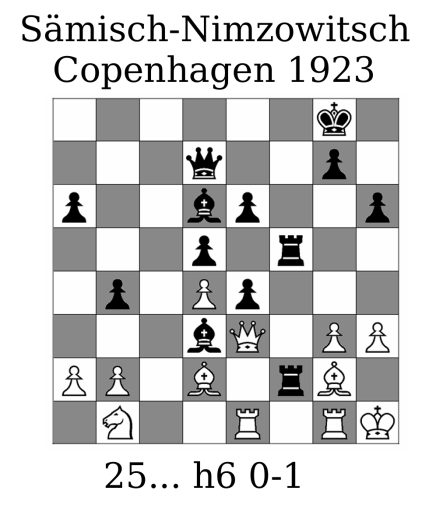As many readers will be aware, I have much against what passes for philosophy these days. I should (and will) write at length about that one day, but right now I just want to make fun of one philosopher in particular. My real passion in this field lies in ridiculing postmodern frauds like Lacan or Irigaray (although the contributions of these are often attributed more to psychoanalysis, “critical theory” or “culture theory”) but alas, I can’t do that here because someone will point out in the comments that I haven’t actually bothered to read anything they have written.
I have, however, read an article (and rebuttal to criticism of the same) by Jerry Fodor. It seems he has previously said worthwhile things about cognitive science, but has more recently given into the instinct apparently typical of philosophers to start making public assertions about things he has absolutely no understanding of.
In the 18th October LRB Fodor had an article titled “Why Pigs Don’t Have Wings”, billed on the cover as “The Case Against Natural Selection”. Needless to say, I was intrigued, and read the piece right away. With a rather inevitable feel it opens with a discussion of the libretto of a Wagner opera and mentions Nietzsche four sentences in. The first paragraph concludes with “Why is it so hard for us to be good? Why is it so hard for us to be happy?”
At this point the reader has absolutely no idea what Fodor is going on about, but that’s not unusual for first paragraphs of LRB articles (why?). Fodor then reveals that the environments most humans find themselves in are dissimilar to the ones they (supposedly) evolved to adapt to. This viewpoint, says Fodor, inevitably causes humans to be seen as fundamentally dysfunctional. He briefly assures that he accepts “Darwinism”, but:
But Darwin’s theory of evolution has two parts. One is its familiar historical account of our phylogeny; the other is the theory of natural selection, which purports to characterise the mechanism not just of the formation of species, but of all evolutionary changes in the innate properties of organisms. […] but it’s important to see that the phylogeny could be true even if the adaptationism isn’t. In principle at least, it could turn out that there are indeed baboons in our family tree, but that natural selection isn’t how they got there. It’s the adaptationism rather than the phylogeny that the Darwinist account of what ails us depends on. Our problem is said to be that the kind of mind we have is an anachronism; it was selected for by an ecology that no longer exists. Accordingly, if the theory of natural selection turned out not to be true, that would cut the ground from under the Darwinist diagnosis of our malaise. If phenotypes aren’t selected at all, then there is, in particular, nothing that they are selected for.
W-huh? Is this one of those fact-causes-unpleasant-thing-so-let’s-change-the-fact -deals? That’s certainly the feeling I got from the bits I quoted, but Fodor goes on to produce an utterly incompetent “conceptual and empirical” critique of adaptationism. As we’ll see later on, it’s difficult to know what Fodor would accept as a description of what he’s trying to say so I’ll just give some money quotes:
There is, arguably, an equivocation at the heart of selection theory; and slippage along the consequent faultline threatens to bring down the whole structure. Here’s the problem: you can read adaptationism as saying that environments select creatures for their fitness; or you can read it as saying than environments select traits for their fitness. It looks like the theory must be read both ways if it’s to do the work that it’s intended to […] [the viability of the prevailing view] depends on whether adaptationism is able to provide the required notion of ‘selection for’; and it seems, on reflection, that maybe it can’t. […] in principle at least, there’s an alternative to Darwin’s idea that phenotypes ‘carry implicit information about’ the environments in which they evolve: namely, that they carry implicit information about the endogenous structure of the creatures whose phenotypes they are. This idea currently goes by the unfortunate sobriquet Evo-Devo (short for ‘environmental-developmental theory’). (if this is what Evo-Devo means, it’s news to me! -SH)
If you’re interested in my interpretation of it all, here goes: Fodor thinks that adaptionism is something that Darwin, over-influenced by his metaphor of selective breeding, cooked up to explain the direction in which evolution goes. This idea has poisoned everything by producing explanations of human characteristics as references to positive adaptive consequences of those characteristics. The idea is also wrong, because it doesn’t tell you which traits get selected for and which are irrelevant. A better explanation is that the whole organism gets selected, and evolution goes in the direction it has originally started along. Humans became what they’re like because they started as a relatively “human” organism and the natural direction for their evolution is to make them even more “human” (this part I’m probably getting wrong, but it’s the best I can do – Fodor says things like “pigs have no wings because there’s no good place on a pig for wings, the whole organism would have to be redesigned”). This way of thinking is also more pleasant because it allows humans to see themselves as “just right”, instead of strangers to the environment they have made for themselves.
In the following issues numerous letters giving various types of rebuttals to Fodor’s article were published, most amusingly a rather cross one from Daniel Dennett. And Fodor’s response? You guessed it: all his critics have misunderstood what he was saying and/or have personal vendettas against him. One point gets a re-rebuttal I didn’t understand, twice he says “I don’t do epistemology” and on one point, the most important question of “what else but adaptationism can possibly explain evolutionary direction”, Fodor now replies that this question will be answered in a forthcoming publication of his.
I won’t comment on the biology of Fodor’s article (I assume I misunderstood it anyway) but simply wonder how this sort of writing (and there’s a lot of it around!) could be classified as anything but intellectual dishonesty. Intentional obfuscation, appeals to consequences and arguing about a subject with almost no reference to results obtained in the subject itself have become trademarks of contemporary philosophers – the very people whose job it is to think clearly. What went wrong?




